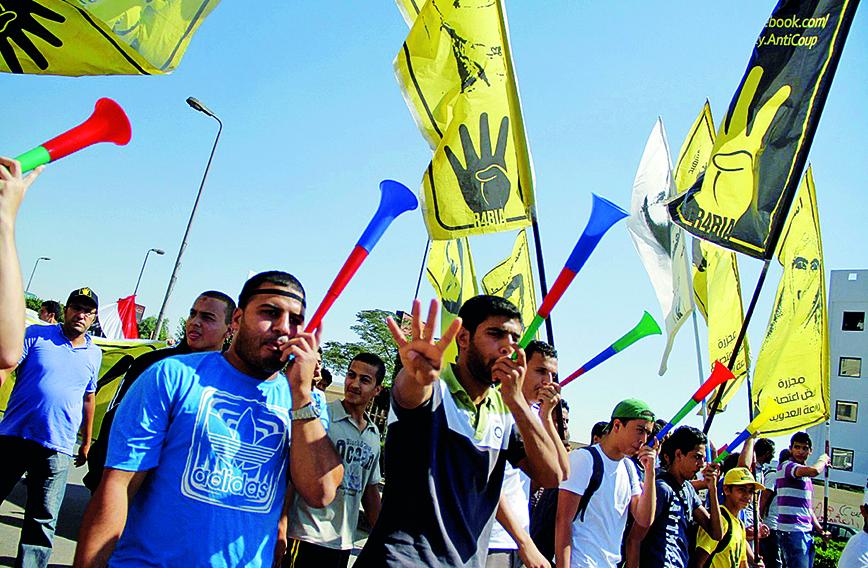
RAJNI BAKSHI
Non-violent civil disobedience is usually associated with images of a lone, unarmed and grim-faced person standing defiantly in the path of a tank. By contrast, laughter does not lend itself to such stark imagery but it is indeed a powerful tool of non-violent resistance to oppressive power.
At a time when many of the elementary freedoms and reassurances of democratic rights are being undermined, defiant laughter is vital — both for the mental health of those who actively resist and as a challenge to the powers that be.
India’s vibrant stand-up comedy scene, with its brilliant political satirists, is important. But my focus here is not on performative comedy where we are an audience. It is far more important to explore how laughter can strengthen non-violent resistance by ordinary people.
Could it be that George Orwell had it right when he said that every joke is a tiny revolution? What are the experiences of non-violent struggles in various countries, which we can learn from and build upon?
M.K. Gandhi famously said that if he had had no sense of humour he would have long ago committed suicide. Yet, keeping us alive is the very least that laughter does.
“While humour lifts up a desperate soul, it can also sabotage a dictator’s authority. Humour is potentially an effective non-violent weapon,” writes Janjira Sombatpoonsiri, a research scholar at the German Institute for Global and Area Studies in Hamburg.
Therefore, the online journal, Waging Nonviolence, has been publishing articles on “Why social change needs to be a laughing matter”.
Humour has been a powerful method of non-violent resistance in dictatorships and democracies alike. The obvious reason is that laughter gives us emotional release. But the more subtle factor is that laughter enables us to embrace, or at least tolerate, those ambiguities which can sometimes trigger stress.
Many in this sphere draw on the four dimensions of non-violent action identified by Dr Stellan Vinthagen, who holds the endowed Chair in the Study of Nonviolent Direct Action and Civil Resistance at the University of Massachusetts, Amherst.
These four dimensions of non-violent action are: dialogue facilitation, power breaking, utopian enactment and normative regulation. The end goal is to effectively challenge dominant discourses and spark discussion in ways that have less chance of becoming aggressive. Evoking laughter does precisely that.
In the past few years, peace and non-violence scholars have documented how this is working on the ground in various countries.
“Laughing on the Way to Social Change: Humour and Nonviolent Action Theory” is the title of an article published by Peace & Change, a peer-reviewed academic journal on peace studies published by Wiley-Blackwell for the Peace History Society. In it, scholar Majken Sørensen analyzes three examples from 20th-century Sweden of how humour helped to deepen the non-violent approach. Sorensen demonstrates that humour is found to have a particular ability to break the power of dominant discourses and strengthen the “ongoing discursive guerrilla war” that the activists are waging.
No Laughing Matter? The Potential of Political Humour as a Means of Nonviolent Resistance: A Case Study of Syria by Sonja Noderer traces the evolution of the forms and functions of humorous production in the history of Syria. Noderer, who teaches social sciences at the University of Duisburg-Essen in Germany, found that despite the escalation and looming failure of the Syrian uprising, humour remained an important means of non-violent resistance.
This is because the grip of authoritarian regimes usually depends on projecting their power as being unshakeable. They also depend on fear to stay in control. By contrast, “humour is fundamentally about disruptions. The point of a joke is to break with the expected; to upend the status quo. And for governments who rely on unquestioned authority, the disruptive nature of humour poses a unique threat. It’s assertive but not violent, earnest but not serious,” write Adam Gallagher and Anthony Navone of the US Peace Institute.
In an article titled ‘Not Just a Punchline: Humour and Nonviolent Action — How Comedy Can Provide Relief and Promote Resistance in Authoritarian Environments’ Gallagher and Navone explain how humour pushes back on fear. “Laughter can embolden protests by relieving the immense pressure that comes with challenging their leaders’ projected authority.”
It is not that jokes topple regimes but they do dent the image of invulnerability. This may have been the main reason behind the success of Bassem Youssef, a surgeon turned comic who became a YouTube star in Egypt at the height of the Arab Spring protests in 2011.
Years later, in a book titled Revolution for Dummies: Laughing Through the Arab Spring, Youssef wrote that what he was hearing in response to his comic commentary was not laughter, it was catharsis: “They watched us because they saw hope in the show — hope to challenge long-standing taboos and authority….”
Perhaps the most powerful reasoning on why laughter and non-violence are inextricably intertwined is provided by the Serbian peace activist, Srdja Popovic. ‘Laughtivism’, as Popovic calls it, is vital because democracy is simply too serious a matter to be left to politicians or parties. Popovic’s book on his experiences in the struggle against autocratic rule in Serbia is titled Pranksters vs. Autocrats. He closes with the advice: “… grassroots campaigning is more effective when it’s fun. Oligarchs, just like autocrats, are weakened when they become objects of derision.”
The ultimate challenge, of course, is how to convert derision into shared laughter, when we laugh with, not at, our ‘opponents’. But that is another story! ν
The History for Peace project’s 2023 conference from August 3-5 in Kolkata, is on the theme “The Idea of Justice” (www.historyforpeace.pw).Rajni Bakshi is the founder of YouTube channel Ahimsa Conversations
Comments
-

AB - Aug. 27, 2023, 7:25 p.m.
Wonderful insights!
-

Mohan Singh Kothari - Aug. 21, 2023, 10:05 a.m.
Brilliant observations rejuvenanting the hope for more peace and less strife in our times. Rajni Bakshi is the most outstanding thinker on non violence now.




